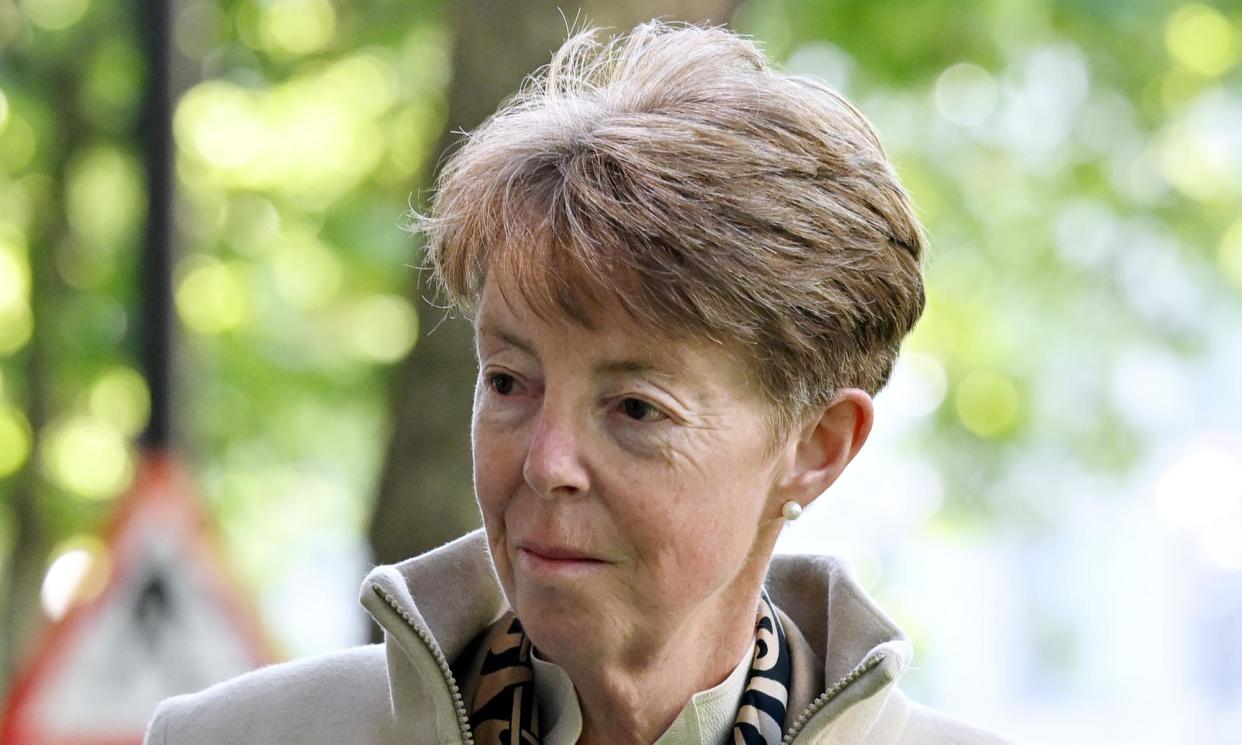Paula Vennells names five executives she blames over Post Office scandal

Paula Vennells, the former Post Office chief executive, has named five executives who she said were to blame for the Horizon scandal, including a missing IT expert and a former in-house lawyer who has refused to appear at the public inquiry.
During a third day of tearful evidence in front of the inquiry, Vennells denied she had given “craven and self-serving” testimony but readily provided the names of those she claimed had let her down.
Vennells, who was the head of the Post Office from 2012 to 2019, has repeatedly claimed in evidence that she was denied information from her senior staff, and argued that she was “too trusting” of key executives.
Hundreds of Post Office branch operators were prosecuted, hounded for money and in some cases pushed to suicide between 1996 and 2015 after errors in the Horizon software system produced financial shortfalls in their branches. The Post Office continued to fight branch operators seeking justice until 2019.
“I loved the Post Office,” Vennells told the inquiry through tears, only to be accused by Sam Stein KC, representing victims, of talking “absolute rubbish”.
Asked by Stein to “give us the names, please” of those who had “let her down” by withholding information as the scandal developed, she listed the senior IT executives Mike Young, whom the inquiry has not been able to find, and Lesley Sewell, and the general legal counsels Susan Crichton, Chris Aujard and Jane MacLeod.
The inquiry’s chair, Sir Wyn Williams, a former high court judge, had earlier in the session said MacLeod had refused to attend the inquiry or appear remotely and that he was unable to compel her to do so as she lived in Australia.
The Met police have been monitoring the inquiry as part of an investigation into potential fraud offences committed during the prosecutions of Post Office branch operators. The Solicitors Regulation Authority, which could bring misconduct charges, is also a core participant of the inquiry, giving it access to papers.
Vennells told the inquiry that she regretted MacLeod had refused to appear. She claimed to have twice raised her concerns with the in-house lawyer about the Post Office’s strategy of trying to force victims to abandon their campaigns for justice at a time when there was internal knowledge of problems with the IT system.
In a strategy paper issued in 2017, seen by the inquiry, the Post Office’s legal team warned that the costs of litigation with post office operators could be “extremely high” and said they believed “a better solution is to try to force the claimants into a collective position where they will either abandon the claims or seek a reasonable settlement”.
The paper said the intention was to target those funding and insuring the post office operators’ claims, who would adopt a “cold, logical assessment of whether they will get a payout”.
Vennells said: “The questions I asked of Jane on those two occasions were: ‘This feels completely wrong to me, what can we do?’ [and] ‘We should not be in the process where we are fighting in court with subpostmasters’.”
Vennells claimed that the first time she asked the question, MacLeod told her the Post Office would try to settle the case, and the second time “the view the leading counsel, that we took … the only way to solve this was to take it through”.
She added: “I regret hugely the group litigation, and I’ve seen all of the paperwork behind it, and in view of the judgments that were taken and where we are today, it is unacceptable reading.”
Vennells broke down under the questioning of barristers for the victims who accused her of hiding a deceptive nature by using “cloying managerial speak” and of living under a “cloud of denial” and providing “craven self-serving” evidence.
Edward Henry KC told Vennells, who is an ordained priest: “You preach compassion but you don’t practise it.”
Related: Hundreds of Post Office Horizon victims to be exonerated by act of parliament
The inquiry heard of an email written by Vennells about an item on the Post Office scandal on BBC One’s The One Show in 2014.
“Hype and human interest,” she wrote to her executive team. “Not easy for me to be objective, but I was more bored than outraged. The MP quoted – who? – was full of bluster and inaccurate. Jo Hamilton lacked passion and admitted false accounting on TV.”
Hamilton, 66, who was played by Monica Dolan in ITV’s Mr Bates vs The Post Office, was wrongly accused of stealing more than £36,000 from her post office branch in South Warnborough, Hampshire. To avoid a jail sentence she had pleaded guilty to the lesser charge of false accounting, and was prosecuted in 2006.
She was just a few feet from Vennells on Friday as Tim Moloney KC, a barrister representing the victims, read out the content of the email.
Vennells turned to Hamilton to apologise: “Of course what I would like to say is I’m very, very sorry … I regret everything I wrote.”
Hamilton later said: “I don’t think it was sincere. She got caught with her pants down.”

 Yahoo News
Yahoo News 
